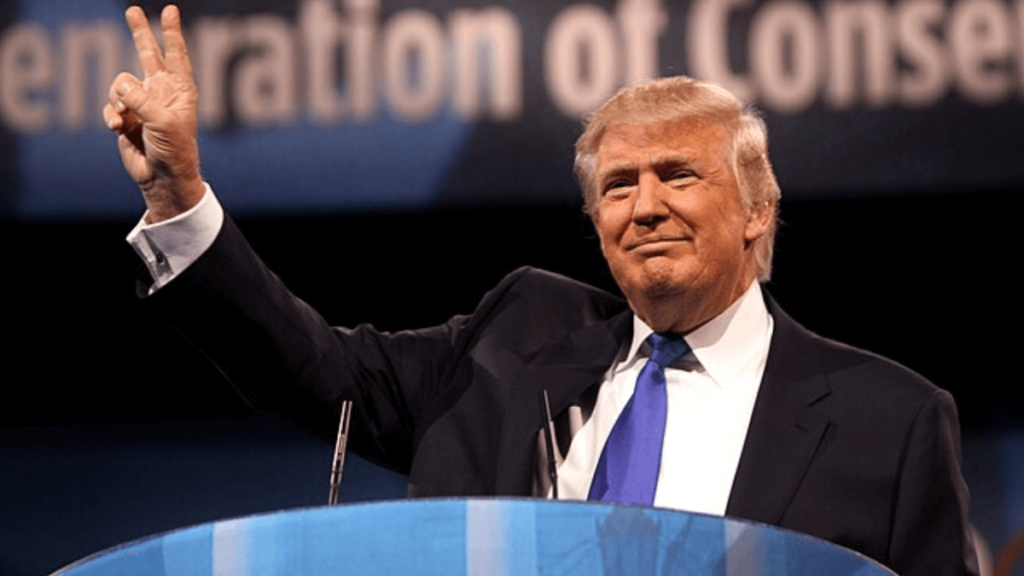In a move stirring intense legal debate and political concern, former President Donald Trump and his advisers are reportedly engaged in discussions about the potential suspension of habeas corpus—a constitutional right that protects individuals from unlawful detention. Sources close to the Trump campaign have revealed that this strategy, championed by senior adviser Stephen Miller, is being considered as part of a broader plan to enable mass deportations should Donald Trump return to the White House.
Table of Contents
As the 2024 U.S. presidential election gains momentum, former President Donald Trump is once again at the center of legal and political controversy—this time for reportedly exploring the suspension of habeas corpus, a bedrock constitutional right. According to recent reports, Donald Trump and his advisers, including senior policy architect Stephen Miller, are considering this unprecedented move as part of a broader plan to fast-track deportations and overhaul immigration enforcement. The proposal has ignited fierce debate among legal scholars, civil rights advocates, and political leaders, raising critical questions about the limits of executive power and the future of due process in America.
What Is Habeas Corpus and Why Does It Matter?
Habeas corpus, Latin for “you shall have the body,” is a foundational legal principle enshrined in the U.S. Constitution. It ensures that anyone detained by the government has the right to appear before a court and challenge the legality of their imprisonment. The Constitution only allows for its suspension “when in cases of rebellion or invasion the public safety may require it.”
Historically, this extraordinary power has been used sparingly, such as by Abraham Lincoln during the Civil War, Ulysses S. Grant during Reconstruction, and Franklin D. Roosevelt in World War II. Suspending habeas corpus outside of those historical crises would mark an unprecedented use of presidential authority in modern times.
Donald Trump’s Strategy: Immigration at the Center
The push to suspend habeas corpus stems from the Donald Trump team’s desire to fast-track deportations of undocumented immigrants. According to a report from Axios, Miller has argued that the current influx of migrants across the southern U.S. border constitutes an “invasion”—the exact wording used in the Constitution as a condition for suspending habeas corpus.
By invoking this clause, the Donald Trump campaign hopes to bypass lengthy legal processes that currently allow migrants to challenge their detention or deportation. In doing so, they believe it would enable federal agencies to remove undocumented individuals more quickly and with fewer legal hurdles.
Legal Experts Sound the Alarm
Legal scholars and civil liberties advocates are raising red flags. The American Civil Liberties Union (ACLU) and other watchdog organizations have warned that suspending habeas corpus to streamline deportations could erode core democratic values and set a dangerous precedent.
Harvard Law Professor Laurence Tribe has called the move “constitutionally dubious,” while former federal judges have emphasized that declaring an “invasion” based on immigration levels is legally untested and could face severe judicial resistance.
“The Constitution allows suspension of habeas corpus only in very narrow circumstances,” said Erwin Chemerinsky, Dean of Berkeley Law. “To use it for immigration enforcement would be unprecedented and very likely unconstitutional.”
Political Reactions and Future Outlook
The proposal has drawn sharp criticism from Democratic lawmakers and moderate Republicans alike. Many view the move as a potential abuse of executive power and a sign of how aggressively a second Donald Trump term could reshape the American legal landscape.
Meanwhile, immigration remains a central issue in Trump’s 2024 campaign platform. By elevating this legal debate, his team is likely trying to appeal to voters concerned about border security while simultaneously testing the limits of presidential authority.
However, suspending habeas corpus would likely face immediate legal challenges and could be struck down by the courts, particularly given the current makeup of the Supreme Court, which includes both conservative and moderate justices with strong views on constitutional interpretation.
Conclusion
As Donald Trump eyes a return to the presidency, his consideration of suspending habeas corpus reveals the lengths to which his administration may go to enforce immigration policy. While the legal feasibility of such a move is questionable, its political ramifications are already reverberating across Washington. Whether viewed as a necessary step for national security or a grave threat to civil liberties, the discussion signals a potentially transformative—and contentious—chapter in American legal history.
